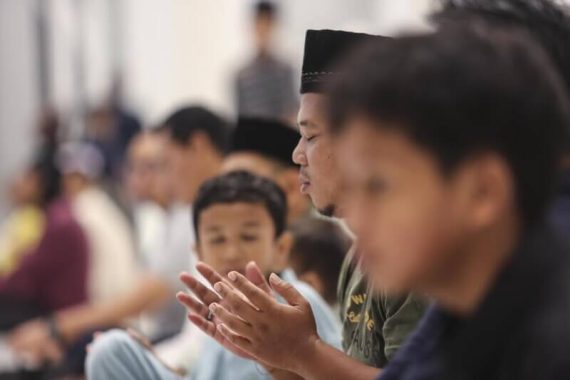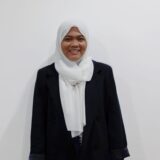F
ounded in 1926, Nahdlatul Ulama (NU) is one of Indonesia’s oldest and largest Muslim organizations, with members spread across the country and overseas. According to data published in 2021, the total number of NU members worldwide has reached 95 million.
Over the decades, the socio-political role of the NU has changed from being known as the defender of the traditional religio-economic network to the defender of pluralism, inclusion and progress. The latter is particularly strengthened under the pluralistic leadership of President Jokowi and the closer ties of the Religious Ministry to NU, which has promoted more influential national structures and an expansive stage of internationalism, as evidenced by the G20 Summit in Bali in November 2022.
The global highlight of NU has not only invited admiration at national and international levels, but also further scrutiny through a number of critics and deeper observations that characterized NU in various adjectives. Questions related to genuine metamorphosis resulting from internal reflections or artificial voice to fit into global narratives are among the most expressed. A wealth of research on the NU and its political elite’s dual identity links remains at the core of the debate.
In the run-up to the G20 summit, one of the most prominent criticisms of the NU has been the idea that it is playing a double game with its slogans of inclusivity, tolerance and pluralism. Mietzner and Burhanuddin (2020), for example, found that NU leadership and grassroots responses to the slogans are not only very different, but are also cited as evidence that NU is “more intolerant” than “the rest of Indonesia’s Muslim population.”
While the grassroots NU are portrayed as such, the upper class members, who are mainly professionals, bureaucrats and elites of the private sector and the aristocratic network, are suspected of being opportunistic politicians, where the slogan of pluralism and moderation is suspected to be used for the highest bid of economic and political privileges on the one hand, and for presenting a pious role model on the other.
In many studies of political Islam, dual identity is seen as a problem for the sustainability of progressive democracy, especially when secularism is supposed to be a dominant ideological rule. For some, the idea of secular democracy is monogamous, divorced from any pious partner of religions. Therefore, when NU calls for the ‘replacement of the caliphate with the legal concept of the united nation and the nation-state’, many scholars have pointed out that this is the embarkment of the problematic dual identity of Muslims in a liberal democratic nation-state.
A centenary decree proclaimed on 7 February 2023 in Sidoarjo, West Java, has put NU in a brighter light. At least as far as social media and the internet are concerned. Not only is it massively discussed and debated by global Muslim and non-Muslim audiences alike, but NU has also successfully internationalized the image of moderate and progressive Indonesian Islam. Not everyone is happy with the image-building, however, as some Muslims would argue that it is not only un-Islamic but also prone to politicization.
Alternatively, the more optimistic scholarly observers believe that the decree would provide a new framework for a movement that would help mainstream the abolition of the concept of the caliphate and the redefinition of Islamic law against its legal tradition in order to protect Islam from the extremism of fanatics. James M. Dorsey’s opinion piece, Reforming Islamic Jurisprudence Shapes the Battle to Define Moderate Islam, highlights this point as the decree states that the NU wants to “replace the concept of the caliphate with notions of the nation-state and the United Nations”, which Dorsey sees as a ground-breaking movement as it “does not exist in Islamic legal tradition.”
NU echoes global moderate Muslims
The reforms meant by NU are also not a verbal scriptural reform towards the al Nash, including those in the traditional legal tradition. It echoes the voice of numerous Muslim scholars around the world in recent decades on the reform of fiqh jurisprudence (fiqih peradaban/ civilized fiqh) in the ontological sense. The connection between Indonesia and the wider Muslim world in this case lies in the progress of the debate on whether relevant fiqh rules should be imposed on societies living in post-colonial industrial development, with or without a sense of belonging to a nation-state, and whether the politics of governance can be further incorporated into the bill of state policy-making.
Unlike Muslims in European countries and partly in the Middle East, where the debate and discourse on fiqh has been highly dynamic and has moved from the era of toxic nationalism to the era of equality for all, Indonesia is still fairly divided along class and interest group lines, where the discourse on these issues remains vulnerable to politicization by middle and upper class bureaucrats, professionals and politicians.
That is why when the ‘One Century NU’ decree states its priority for a new mission to replace the Khilafah, it actually echoes what has been expressed by other moderate Muslims around the world. It rejects the conflict and war that would result from a caliphate mentality and calls for individual leadership responsibility towards humanity, which in Islam is called caliphate. This is a grassroots definition of the caliph.
The reform of Islamic jurisprudence (fiqh) is not only aimed at thwarting extremism and terrorism, but also at fulfilling the core value of syariah, as revealed in the decree: “a new vision aimed at preventing the exploitation of identity, rejecting inter-group hate speech, enhancing solidarity and respecting different races, cultures and nations in the world, so that the world structure of justice and harmony would be based on the recognition of the equal rights and dignity of human beings. This would support the realization of the integral function of Syariah (Sharia law).
So, to talk about NU is to talk about its coherence with the moderate Muslim organizations and educational institutions in Europe and some Middle Eastern countries. Political Islam has provided irrelevance to limit its comparison, in a good way or vice versa, to the Muslim political problems of ISIS (DAESH) or the 9/11 attacks in the U.S., not to mention the Iranian Revolution.
Recommended
Caliphate vs. Toxic Nationalism
The caliphate has been constructed as the antithesis of the nation-state. Shouting the word caliphate means revolution against the nation-state. The root narratives in Indonesia were more than 150 years old when the Dutch choreographed the regulation of political Islam in the 1920s. One of the regulations was to suppress the networks of indigenous East Indians with their Ottoman and Middle Eastern counterparts. The regulations included articles that penalized any form of support for pan-Islamism. This is to protect the Dutch nation-state sovereignty that was inherited by the Indonesian aristocratic bureaucrats, politicians and military generals on the island of Java after the independence era.
This is generational rigidity, part of a toxic nationalism that could still be reflected in Indonesia’s national defence and security protocol. This is where Indonesia needs political moderation to be imposed on both sides, the state in its position of caliphate and the groups – many of which have been banned – that have embraced the state caliphate. Failure to do so would mean a brink of extremism where violence is at stake.
In the case of the caliphate, the NU seeks moderation where it rejects the attachment of geopolitical sentiment to the historical sovereignty of the caliphate and embraces the combination of the popular notion of the caliph. The nature of the peacemaker stood alongside the secular global world. Thus, the dual identity of NU reflects a strategic move signalling the sustainability of peacebuilding and peacekeeping in the democratic world.






